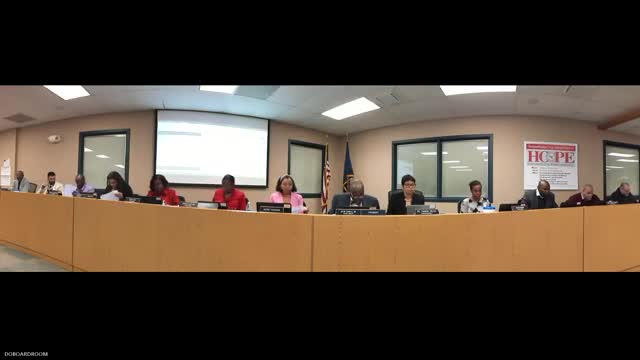Board approves broader code of conduct language covering off‑campus conduct tied to extracurriculars and social media; members debate scope
Get AI-powered insights, summaries, and transcripts
Subscribe
Summary
The Susquehanna Township School District Board approved a revision to the student code of conduct on second reading that clarifies the district may discipline students for off‑campus conduct when there is a direct nexus to attendance at school or a school‑sponsored activity, including some social‑media conduct and incidents that occur while traveling to or from extracurricular events.
The Susquehanna Township School District Board approved a revision to the student code of conduct on second reading that clarifies the district may discipline students for off‑campus conduct when there is a direct nexus to attendance at school or a school‑sponsored activity, including some social‑media conduct and incidents that occur while traveling to or from extracurricular events.
Why it matters: the change expands explicit school jurisdiction over certain off‑campus behavior connected to extracurricular activities. Board members and administrators said the provision is intended to allow the district to address threats and misconduct that affect school safety or a student’s ability to attend or participate in school programs.
What the policy says and how administrators described it
District staff and board discussion focused on language in the policy that applies when off‑campus conduct has a direct nexus to school attendance or to a school‑sponsored activity. An administrator said the district can apply consequences for a threat or other serious misconduct even if the conduct occurs off school grounds, and that application will depend on the nature of the conduct and any evidence of a threat.
Board concerns and clarifying exchanges
Several board members questioned the breadth of the policy. One board member described the draft language as "a very broad mandate" and warned that social media posts at home could be swept in depending on how nexus is interpreted. Administrators responded that applying the policy outside school boundaries requires a demonstrated connection — for example, misconduct that occurs while students are traveling to an away game or that constitutes a credible threat. Another administrator noted the district’s authority generally applies until a student is in the custody of their family or at their home, which was cited as a limiting principle in determining when the code applies.
Vote and next steps
Board members approved the policy in the action agenda vote (second reading). The board did not change the underlying standard that application depends on the nature and severity of the conduct; administrators urged that difficult cases be handled on a fact‑by‑case basis.
Ending: staff and board members said they expect the district to clarify implementation details through administrator guidance and that specific situations will be evaluated individually.
